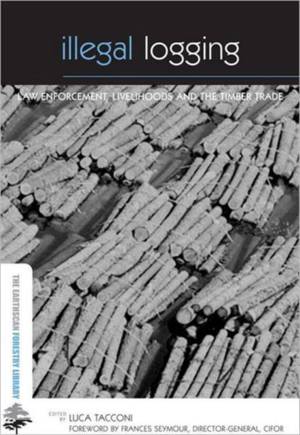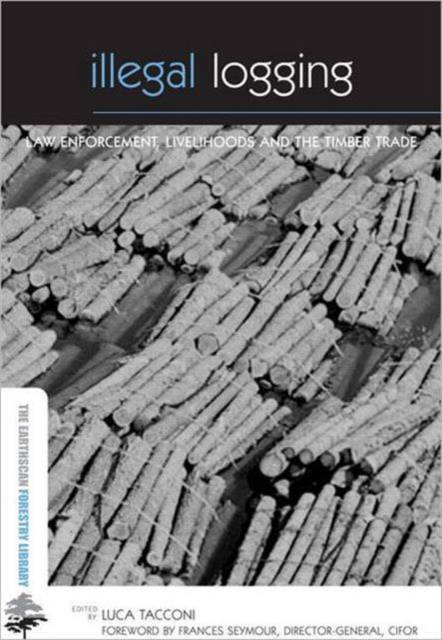
- Retrait gratuit dans votre magasin Club
- 7.000.000 titres dans notre catalogue
- Payer en toute sécurité
- Toujours un magasin près de chez vous
- Retrait gratuit dans votre magasin Club
- 7.000.0000 titres dans notre catalogue
- Payer en toute sécurité
- Toujours un magasin près de chez vous
Illegal Logging
Law Enforcement, Livelihoods and the Timber Trade
Description
'This book carefully blends conceptual insights with extensive empirical evidence to navigate the reader through an issue that is still poorly understood [and is] a valuable reference for the development practitioner to understand the fundamental causes of illegal logging, its myriad consequences and the policy choices available to address the problem' Nalin Kishor, Forest Law Enforcement and Governance Coordinator, The World Bank
'An excellent resource for those working to conserve and sustainably manage forests worldwide. It offers an extensive and comprehensive study of illegal logging, bringing together the knowledge and views of experts who examine its roots and social, economic and environmental implications. One of its important contributions is to show that, unless coupled with reform of forestry regulations to take into account local people, law enforcement to curb illegal logging can negatively impact them. Therefore, any effective and fair approach to the problem needs to involve governments, forestry operators and local communities alike' Gonzalo Oviedo, Senior Social Policy Advisor, IUCN
In many countries illegal logging now accounts for a large share of the harvest. Once cut, illegal logs feed an insatiable demand for exotic hardwoods in developed and developing countries. The result has been loss of both revenue and biodiversity, and consequently the issue has risen to the top of the global forest policy agenda as one of the major threats to forests, and donors and national governments are starting to develop initiatives to control illegal logging.Yet for such a massive illegal trade, there is surprisingly limited knowledge available as to the major causes of illegal logging and its impacts on biodiversity, people and livelihoods and national economies, and thus plenty of speculation and action without evidence. It is clear that while illegal logging does have negative impacts, it also, controversially, and perhaps paradoxically, benefits many stakeholders, including local communities.
This book, written by the world's foremost experts, examines the key issues including law and enforcement, supply and demand, corruption, forest certification, poverty, local livelihoods, international trade and biodiversity conservation. It includes key case studies from forest-rich hotspots in North, South and Central America, equatorial Africa and Indonesia. While there are clearly no easy answers, this book sorts fact from fiction and explores the many dimensions of the causes, impacts and implications for forests, people, livelihoods and forest policy.
Published with CIFOR
Spécifications
Parties prenantes
- Editeur:
Contenu
- Nombre de pages :
- 320
- Langue:
- Anglais
- Collection :
Caractéristiques
- EAN:
- 9781844076079
- Date de parution :
- 07-10-08
- Format:
- Livre broché
- Format numérique:
- Trade paperback (VS)
- Dimensions :
- 155 mm x 229 mm
- Poids :
- 498 g

Les avis
Nous publions uniquement les avis qui respectent les conditions requises. Consultez nos conditions pour les avis.





